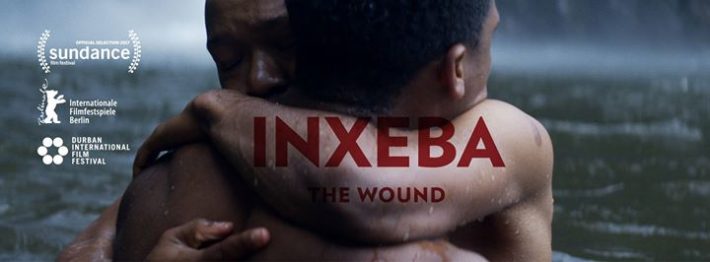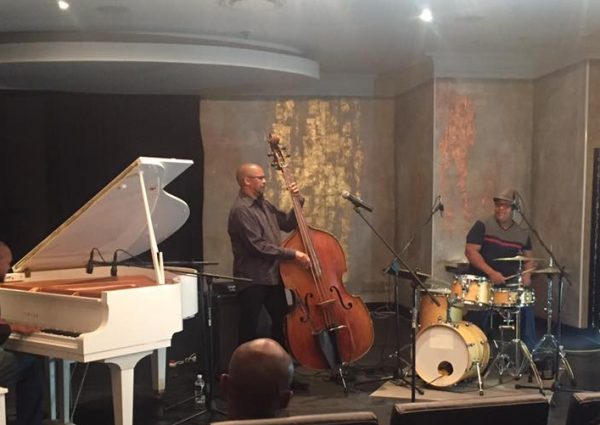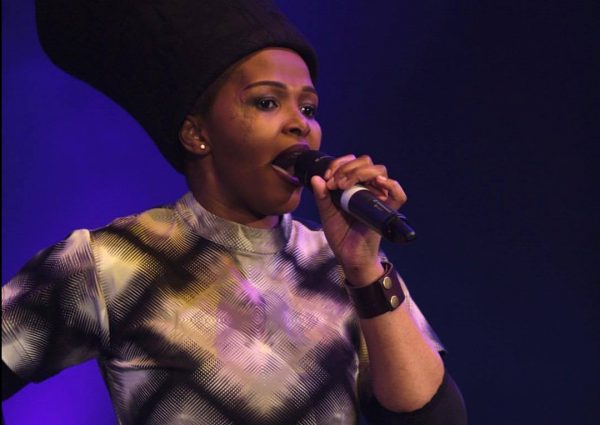At the core of it, Inxeba is a beautiful albeit tragic story of unrequited – or more accurately, unrequittable love, writes ART STATE Publisher Mpho Matsitle.
Men who aren’t
In traditional patriarchal masculinity terms, a man is a self-sufficient and self-defining sovereign entity with one important caveat: within the bounds of a collectively defined manhood. This manhood, as defined by the collective of Xhosa men as imagined by Tengrove’s Inxeba, is at its core heterosexual and homophobic.
Xolani and Vija, portrayed by Nakhane Toure and Bongani Mantsai respectively, represent the ideal man, who denies his self-definition for the sake of the collective definition. Something that the young initiate Kwanda, played by Niza Jay, fatally rejects outright. And he tells Xolani as much: “How can you teach me how to be a man when you can’t even be true to yourself?”
Van toeka af
The two inkankatha’s are childhood friends who went through ulwaluko together. They also happen to be homosexual, or in the case of Vija – married to a woman and a cash-strapped father of three daughters – possibly bisexual.
Kwanda too, through innuendo and conjecture, is presumed gay. It is interesting to note that Kwanda never identifies as such, but the film relies on stereotypical characteristics to lead us to that conclusion. More than once did one hear “that’s so gay” chuckles emanate from the movie goers whenever he did or said something.
Xolani and Vija’s relationship also happens to be sexual, and seemingly romantic. Although they hide themselves well from the world, with each other Xolani is the more open of the two. For Vija there’s always resistance, even in private. To assert his dominance (i.e. manhood) over Xolani, he is rough with him sexually and almost treats him like a disposable sex toy. Vija is also always careful to emphasise their long-standing friendship, anticipating and averting the romantic relationship that Xolani clearly seeks.
Friends with benefits
When Xolani offers him financial help, Vija resists. He finally accepts when Xolani forcefully places an envelope of cash in his hands. Later on, in the very next scene, they make love and Xolani uses the opportunity to ask – in not so many words – the proverbial dreaded “what are we?” question. Vija is triggered and gives Xolani his money back in a fit.
There are three ways I want to read this. Firstly, Vija, who harbours the homophobic vitriol of his community, might see the financial aid as being “bought” into homosexuality, as is the rampant homophobic myth that ‘men are being lured into homosexuality by money’.
Secondly, more kindly, he might be seeing this as a cheapening of their friendship, in that the lines are blurred as to whether Xolani is helping him as a friend or campaigner for his heart. Lastly, romantically, albeit less likely, Vija finds this a cheapening of their amorous love. A mavuso type of vulgarity. Money and love have never made for good bedfellows.
Vija’s language of love
Two other episodes in the movie that flow into each other and give the story its tragic albeit romantic end make for another interesting and ambiguous reading of Vija’s love for Xolani.
Xolani is confronted by two initiates about his assumed “taboo” homosexual affair with Kwanda. This scene rests on one of the many inexplicable logical leaps that riddle the movie. One such is how Kwanda just knew that Xolani and Vija have a fraught sexual relationship. It would seem everyone’s “gaydar” – a problematic concept in itself – in that mountain was finely tuned. And the film too depended on the viewer’s equally well calibrated “gaydar”.
Xolani violently tries to assert his authority over the two boys, not even willing to respond to their accusations, but punish them for even daring to accost him so. A proper posture in such a situation, sans the violence. No one has the right to know anyone’s sexuality.
The boys seem ready to fight him back, assuming weakness in him seeing that he’s defined himself outside the coordinates of manhood. In steps in Vija, he asserts Xolani’s authority by making the initiates face him and acknowledge him as a venerated being. As Vija’s manhood is not in question, the boys concede, even if reluctantly. But Vija’s wound is not sated, so he beats them to a pulp.
One may read this as Vija defending the sanctity of culture and tradition (abakhwetha must respect inkakatha), his colleague, friend or lover. Or it may be read as him defending himself; his secret, his family and his manhood.
I contend that it is all the above. Vija is not a binary Machiavellian robot – he is a human being with multiple (infinite) contradictory interests. And all are important. With that one lunge at the insolent initiates he protects all that is dear to him, all that he loves.
Xolani’s deadly choice
Xolani reads the incident as any love-struck puppy is wont; as a grand gesture of love. He goes and finds Vija swimming away the adrenaline. They embrace, they make love, wasted and naked they fall asleep in each other’s arms by river bank. Again, inexplicably, Kwanda happens to have wandered off and walks in on them at that very inopportune moment.
Vija takes off after him, Kwanda escapes him and in the process gets lost in the wilderness. A search party fails to find him, but Xolani eventually does. He offers to make his escape permanent, an offer Kwanda accepts. What he won’t be party to though is the pact to keep the secrets of the mountain. As far as he’s concerned, Vija is a hypocrite that must be exposed.
Kwanda is the least tolerable character in the film: he goes off on preachy “woke” rants that seem force fed, and represents the ‘civilising’ element among savages that can’t escape white artists’ imagination. His unreasonable refusal to understand the difficulty Vija and Xolani are in is no less irritating than the boys who accosted Xolani at the mountain.
But, is Kwanda not maybe looking for a homosexual man who is a man – indoda – so that he could also have a place amongst his people? Maybe he looks to Vija as this “real man” that can finally break the recognition barrier for men like him. And hopes exposing him will push him into such a revolutionary posture.
Xolani, though, has no such a sympathetic reading of the city boy’s big mouth. The well initiated man he is – a man amongst man – he will not have the sacred secrets of the mountain escape with the spoilt brat who Vija had earlier accused of being on a mission to make a mockery of their customs.
A man will do anything to protect what is his. He chooses these customs over Kwanda. He chooses tradition. He chooses his manhood. But above all, no matter how wounded and impossible it is, he chooses love: he kills Kwanda.
Mpho Matsitle is the Publisher of ART STATE.






